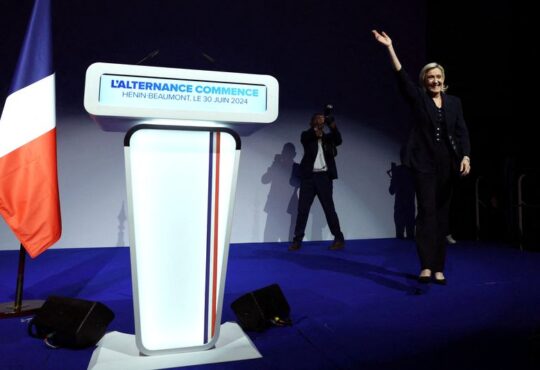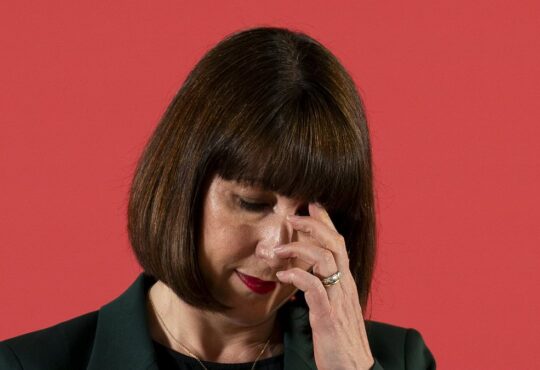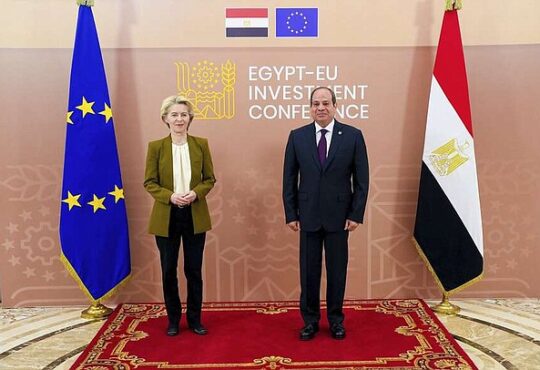
EUROPE-DENMARK
![]()
Despite the emphasis on practical application rather than theory in Horizon Europe projects and the financial deductions they mean for the national research budget, most researchers are upbeat about the benefits of Denmark’s high rate of participation in Horizon research projects.
Recent data about Denmark’s performance in the Horizon Europe research programme highlights the country’s high rate of participation, particularly among its universities.
According to a statement from the Ministry of Higher Education and Science on 8 November, two years into the seven-year Horizon Europe research programme, 1,173 Danish participants (researchers, companies, municipalities, etcetera) are involved in 826 research and innovation projects, which is over 10% of the total number of projects funded by the programme.
Danish higher education and research institutions make up 65% of the Danish Horizon participants, receiving three-quarters of the total Horizon funding to Denmark of DKK3.9 billion (€523 million). Commercial actors by way of comparison participate in 23% of the projects funded, receiving 16% of the total funding.
According to the statement, which is based on information from eCORDA, the EU database, as of 1 April 2023, the success rate of Danish applications to Horizon Europe was 22.46%, while the average success rate was 16.14%.
Global challenges
Danish participants are particularly active in the “Global challenges and European Competitiveness and Growth” pillar of the Horizon programme which focuses on solutions to global challenges in health, digitalisation and climate.
In this area, Danish researchers participate in 440 projects or 20% of the projects selected compared with Germany (451 projects), Spain (392), Italy (384), France (345), The Netherlands (333), Belgium (325), UK (296), Sweden (206), Greece (200), and Portugal (189).
One of the Danish projects in this pillar is the Blades2Bild coordinated by Professor Ana Teresa Maçãs Lima at the Technological University of Denmark DTU which involves 14 partners across Europe. The project, valued at EUR15.5 million investigates the re-use of windmill blades in order to secure the sustainable and circular production of wind energy and has attracted funding of EUR12.3 million from Horizon Europe.
Lima told University World News that participation in Horizon Europe gave Danish researchers the opportunity to apply theoretical and experimental knowledge to current problems the European society is facing.
“I think that we very often move out of our comfort zone – both in terms of knowledge but also in terms of collaborating partners – and forces us to talk multidisciplinary to solve pressing environmental and societal problems,” she said.
On the reason behind Denmark’s success in attracting funding, she pointed to Danish society: “Denmark prides itself on leading the green agenda and always pushes our society to improve its status. Maybe because Denmark is small in numbers (around 5.8 million inhabitants) allows for more creativity and freedom in its operation – and that is reflected in research and innovation.”
Another project funded by Horizon Europe is R3PACK which brings together 24 institutions and organisations, including Aarhus University, in seven countries to investigate sustainable packaging solutions under Cluster 6 of the Horizon programme: “Food, bioeconomy, natural resources, agriculture and environment”.
The total costs of the project are EUR8.6 million, with EUR6.9 million coming from Horizon Europe.
Practical vs theoretical approach
Professor Polymeros Chrysochou, professor of marketing and consumer behaviour at the Department of Management, Aarhus University, and coordinator for industry cooperation at the MAPP Centre at Aarhus, which is part of the R3PACK project, told University World News most Horizon Europe projects have a more “practical” rather than a “theoretical” emphasis, which enhances the relevance of research, but may not be fully appreciated within the academic community.
However, as an academic representing the social sciences and humanities field, he said he can see the value of academic partners on the projects: “We bring in theoretical relevance to the projects we are participating [in] … On the topics I work myself which relate to food packaging and alternative proteins, the value of such participation is … [having] an interdisciplinary team.
“Through my career as an academic, I believe this is where the value is in participating in such projects. Each field needs to appreciate other fields and understand how to create synergies that enhance the fields that we represent.”
Chrysochou said involvement in the Horizon projects highlighted the limited time academics had at their disposal. “Unfortunately, every project comes on top of our teaching and other administrative obligations … Something should be done here from our institutions. Thus, there is a need for a balance regarding how many projects we can actually be involved in,” he said.
Funding implications
David Budtz Pedersen, professor of human centred science and digital technology at Aalborg University, described the ‘significant’ Danish participation in Horizon as “a sign that Danish universities are doing it right, are open for international collaboration, and support EU participation”.
However, he said it was “absurd” in the light of the country’s impressive application success rate that the Danish government had “chosen to deduct national research funding equivalent to every euro Danish institutions bring home”.
He said every time Danish researchers are granted funding from the European Commission, “the government ‘punishes’ the universities by channelling less funding through Danish instruments. That is a bizarre part of the Barcelona targets,” he said.
“In my world, it would make more sense to reward EU funding. It is contributing to internationalisation, mobility and talent, and we need incentives to secure participating in the future.”
The comments from Pedersen were echoed by other academics in Denmark and the region.
Maximising participation
Jesper Langergaard, director of Universities Denmark, said the way in which EU funds are deducted from the national research budget “sends a message of disinterest from Denmark in the European research collaborations which is far from how both university leaders and the researchers that are pursuing European and international cooperation view EU cooperation in this area”.
He told University World News: “Despite adverse incentives, the Danish universities will continue to seek to maximise our participation in Horizon Europe and future European funding programmes to collaborate on excellent science and create European solutions to the grand challenges that we are facing.”
He said his organisation hoped to engage the Danish government in a dialogue about the deduction scheme for European research funding “in order to open up further possibilities for participation and collaboration for Danish researchers, companies and universities and show both Danish and international researchers as well as other member states that Denmark is serious about our participation in the framework programme for research and innovation”.
Dan Andrée, former representative of Swedish innovation agency Vinnova, based in Belgium, and current Brussels representative for the University Alliance Stockholm Trio, made up of the Karolinska Institute, KTH and Stockholm University, said the funding situation in Denmark reminded him of the actions of [Margaret] Thatcher:
“who cut the national funding, and this ‘forced’ researchers in the UK to be active and they were also very successful. In a way UK research was ‘forced’ to be active but the Danish model seems even worse: you are punishing the research!
“In Sweden we have given input into the next research bill and many universities and funding agencies are asking the government to offer incentives for taking part in the framework programme rather than disincentives.”
Future prospects
Despite the funding issue, academics are generally upbeat about the prospects for Danish research.
Frede Blaabjerg, a professor in the Department of Energy Technology at Aalborg University and chairman of the Danish Council for Research and Innovation Policy, said: “Danish Universities have in the last decade been more and more engaged and have also been successful with collaborative projects to solve societal challenges, which include the Horizon Europe programme.
“Despite a drop we still have a strong research quality according to the recent studies.”
Professor Jesper de Claville Christiansen, based in the Department of Materials and Production, Physics and Mechanics Section at Aalborg University in Denmark, said engaging university scientists in Horizon Europe is of “paramount importance”.
As a national expert in the programme committee for Horizon’s Cluster 4: “Digital, Industry, and Space”, Christiansen said he understood the broader context of Horizon Europe’s primary focus on the “twin transition” emphasising sustainability and digitalisation.
“The programme’s inclusive approach recognises that addressing contemporary challenges requires a multidisciplinary perspective,” he said.
Leveraging collective capabilities
“In contrast to programs like the European Research Council (ERC) that primarily target excellence, the Horizon programme adopts a pragmatic approach. It seeks to leverage the collective capabilities of knowledge institutions and industry to tackle central challenges and generate societal value.
“This shift from pure excellence to application-oriented research aligns with the pressing needs of our times and calls for collaborative efforts between academia and industry,” he explained.
Christiansen said while there is a concern that mission-driven research may impinge on academic freedom, especially without adequate support for independent inquiry, it was crucial to acknowledge the positive outcomes that can arise.
“By aligning research with industrial challenges, university scientists can pose novel questions that not only contribute to excellence but also address real-world issues, making their work highly relevant to society,” he said.
“Moreover, international collaboration within the Horizon Europe framework expands the horizons of university researchers. It provides access to a broader knowledge base, advanced research instruments, scientific exchange, and additional industrial funding. Collaborating on an international scale not only enhances the quality of research but also ensures its applicability in a global context.
“In summary, active involvement of university scientists in Horizon Europe’s Cluster 4 is vital for addressing the great challenges of our time. It not only aligns with the program’s overarching goals but also offers a unique opportunity for researchers to contribute meaningfully to society, foster international collaboration, and bridge the gap between academia and industry,” he said.





